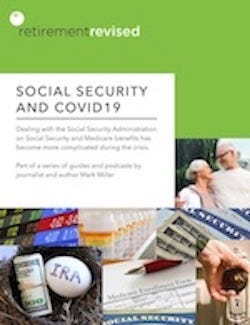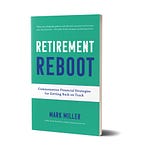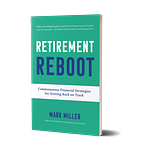
This week on the podcast, we check in with labor economist Teresa Ghilarducci on the unemployment situation for older workers, as reflected in the April jobless report that was released this morning.
Teresa is a professor at the New School for Social Research in New York, where she directs the school’s Schwartz Center for Economic Policy Analysis, and its Retirement Equity Lab (ReLab). She specializes in the labor situation for older workers.
The federal government’s April jobs report market was as grim as expected. The total jobless rate soared to 14.7 percent, which meant that 20.5 million fewer Americans were employed than during March.
The worst numbers were for younger people - 26 percent of workers age 25 to 29 were out of work last month. But I wanted to talk with Teresa about the figures for older workers. The official rate for people over age 55 more than quadrupled to 12 percent, but that understates the real damage. She calculates that the true rate is around 20 percent.
We also talked about how the COVID19 crisis is rewriting the labor force dynamic for older workers. Age discrimination already was a big deal before the crisis, and many employers likely will now treat older workers differently post-crisis, since they are more vulnerable to the virus. Here’s what Teresa told me on this point:
“Since we won't have a vaccine, probably, for about two years, this means that older workers will very sensibly not want to go back to work unless their employers can make it a safe environment. And employers will not will not be able to make it that safe for older workers even if they wanted to. It'll be much more expensive.”
Listen to the podcast by clicking on the player icon at the top of the newsletter. The podcast also can be found on Apple Podcasts, Spotify and Stitcher.
New guide: Social Security in the age of pandemic

Last week, I released the latest in my retirement guide series. This one explains how to deal with the Social Security Administration during the COVID19 crisis.
The downloadable guide looks at how customer service at the Social Security Administration has changed during the coronavirus crisis, and how to get business done there. Social Security closed its network of more than 1,200 field offices to the public in March, 2020. Staff members are seeing people in person at the field offices for a very limited number of transactions. Social Security is handling most routine business via its toll-free line (800-772-1213) and its website. The guide also spells out what Medicare covers that is related to COVID19 - and the changes the program has been making to respond to the emergency.
Click here to download your copy of the Social Security COVID19 guide.
Just a reminder- subscribers, have access to the entire series of guides at any time. Click on the little green button to subscribe, or go here to learn more.
Recommended reading and listening this week
PBS NewsHour interviewed one of the nation’s leading infectious disease specialists on the likely long-range path of the virus . . . I clung to the middle class as I aged - the pandemic pulled me under . . . Covid-19 vulnerabilities were a predictable outgrowth of our market-based health care system . . . The push for profits left nursing homes struggling to provide care . . .The idea that boomers were blase about the coronavirus is nonsense. . Beware buying a Medicare plan from Joe Namath . . .Broker-dealers will have to be careful when calling themselves advisors starting on June 30th . . . Health Savings Accounts add new options during the coronavirus crisis . . . The pandemic has amplified ageism . . . Americans without retirement savings are increasingly moving in with their millennial children . . . What parts of the economy are still humming along in the crisis?












